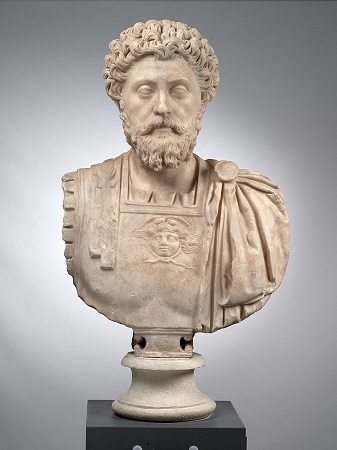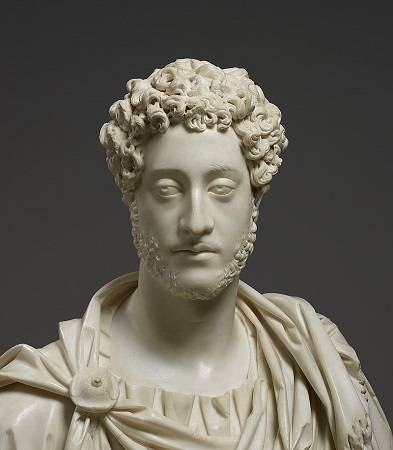“Are you not entertained?” exclaims Russell Crowe, who plays General Maximus Decimus Meridius in the Academy Award-winning film Gladiator.
The crowd responds with cheers after witnessing Maximus defeat multiple gladiators. Filmgoers were entertained, and it showed as the film grossed about $500 million.
The question now remains, is Ridley Scott’s Gladiator film a true story? The short answer is yes and no.
While it is clear that the producers conducted an extensive historical and scientific study, much of the plot is fictitious. On the other hand, fiction appears to be influenced by actual historical events.
While immensely innovative in its own right, the film’s plot bears an uncanny resemblance to Anthony Mann’s 1964 masterpiece The Fall of the Roman Empire.
Scott appears to be attempting to give a reconstruction of empirical facts and boldly present to us his image of ancient Rome’s religion, culture, the spirit of its time, and the psychological orientation typical of the period.
In a nutshell, the movie portrays the cultural zeitgeist of ancient Rome and offers a study into the characters’ psychology and mentality.
While flawed, this aspect of the film is more substantial than its historical accuracy. In his 1969 opus The Satyricon, Fellini intended to do something similar.
By investigating the psychology of ancient times and history, he created a tale that became ageless. The work is also modeled on Petronius Arbiter.
Scott, while historiographically imperfect, avoids the psychological anachronisms evident in films such as Spartacus, Cleopatra, and Ben Hur.
While entertaining, these movies portray the protagonists in a modern way that they appear to think and act primarily like modern personages dressed in unsoiled antique garments.
Director Scott and screenwriter David Franzoni think that history, at least as they show it, is not a rehashing of empirical data but rather an attempt to comprehend the psyche and culture of its characters.
Nonetheless, the film’s overarching goal is to tell a good narrative. The film emphasizes Maximus’ devotion to his family and ancestors, his compulsive need for virtue and duty, and the stoic components that are always present in his character.
They also appear to be taught and informed on the side of those who constructed this persona.
In short, the film is based on actual events. However, it should not be regarded as an authentic historical reference for actual events, many of which are recognized as different and with precision.
Maximus Decimus Meridius was modeled after who?
Content
Meridius Maximus Decimus: Maximus is an entirely fictional character who seems to be based on various historical figures, notably Avidius Cassius, a commander in Marcus Aurelius’ troops.
He proclaimed himself Emperor immediately after the death of Aurelius in 175, implying a brief power struggle.
Was the Emperor in Gladiator a natural person?
By every metric, Commodus was a dreadful emperor. In the film Gladiator, his dramatized portrayal as a crazed emperor downplays some of his less alleged excesses while giving him a nobler end.
Maximus, was he a true soldier?
Tiberius Claudius Maximus (died after AD 117) was a legionary in the Imperial Roman infantry who fought in the Roman army and Auxilia during the reigns of Domitian and Trajan.
Influences for Gladiator

The motion picture narrative was inspired by two 1960s Hollywood sword-and-sandal films, The Fall of the Roman Empire and Spartacus.
It conveys numerous plot elements with The Fall of the Roman Empire, which narrates the tale of Livius, who, like Maximus in Gladiator, is Marcus Aurelius’ envisioned successor.
Livius is madly in love with Lucilla and wishes to marry her, while Maximus, who is happily wedded, was once madly in love with her. Both films depict Marcus Aurelius’ demise as an assassination.
In The Fall of the Roman Empire, a clan of conspirators unrelated to Commodus plan for Marcus Aurelius to be assassinated to benefit from Commodus’ succession.
Similarly, in Gladiator, Commodus personally kills his father by suffocating him. Likewise, in The Fall of the Roman Empire, Commodus attempts futilely to woo Livius over to his idea of empire but persists in engaging him.
In Gladiator, after Commodus fails to acquire Maximus’s loyalty, he murders Maximus’s wife and son and attempts ineffectively to kill him.
Both Livius in The Fall of the Roman Empire and Maximus in Gladiator defeat Commodus in direct combat. Livius rescues Lucilla and Maximus to revenge for the death of his wife and son, and both for the common welfare of Rome.
Spartacus and Ben-Hur, according to Scott, were inspirations for the film. He said in an interview, “These films were a part of my cinematic upbringing.
But, when the century began, I thought it would be an excellent opportunity to review what may have been the most crucial moment in the past two thousand years – if not all documented history – the zenith and beginning of the collapse of the world’s greatest military and political force.”
The gladiatorial imagery is provided by Spartacus, as is the character of Senator Gracchus, a fictitious senator (carrying the name of a couple of revolutionary figureheads from the 2nd century BC). The character appears in both films.
He appears as a diplomat of ancient Rome trying to maintain the ancient privileges of the Roman Senate in the face of a bold ruler – Marcus Licinius Crassus in Spartacus. In Gladiator, he appears as Commodus.
Both actors who portrayed Gracchus (in Spartacus and Gladiator) had acted Claudius in prior films.
Spartacus’ Charles Laughton portrayed Claudius in the incomplete 1937 film I, Claudius. Likewise, Gladiator’s Derek Jacobi performed Claudius in the 1976 BBC version.
Both movies also express a particular, predetermined set piece where the Gladiator tosses his weapon into the audience at the end of a match and at least one line of dialogue: “Rome is the mob.”
Gracchus say this line in this film and Julius Caesar (John Gavin) in Spartacus.
Inspiration for Emperor Marcus Aurelius in Gladiator

Marcus Aurelius was a stoic philosopher who reigned as Emperor from 161 to 180 CE. He did, in fact, fight conflicts along the border, as represented in the film.
He is also recognized by historians of his period as a capable ruler whom they admire.
His full name was Imperator Caesar Marcus Aurelius Antoninus Augustus, and these are the titles he would have been addressed to, rather than the antiquated “sire” and “my lord” used in the film.
Although his work – The Meditations, is more of a compendium of previous stoic ideas than a work of significant originality, it is a highly read classic in philosophy.
An essential element left out of the picture was that his adoptive brother and Lucilla’s husband, Lucius Verus, were appointed co-emperor alongside Marcus.
During the Republic, Rome was governed by two consuls rather than emperors.
These consuls, who had equal power, were supposed to protect the country from dictatorship.
So, whether Marcus indeed did have Republican sympathies, as alluded to in the film, or perhaps this was a Machiavellian ploy to avoid the fate of the imagined tyrant Julius Caesar.
The Roman Empire had two concurrent emperors with ostensibly equal sovereign power and powers for the first time in history, though Marcus was indisputably the ruler of Rome.
Inspiration for Caesar Marcus Aurelius Commodus in Gladiator

If ancient texts are believed, Commodus was much stranger than he was in the film.
Commodus, whose official title was Caesar Marcus Aurelius Commodus Antoninus Augustus, was acclaimed Caesar when he was five years old and joint Emperor (co-Augustus) when he was seventeen, in 177 CE, by his father, Marcus Aurelius.
In this case, reality differed significantly from the movies. Commodus was there with his father during the Danubian battles, as represented in Gladiator, and yes, this is where Marcus Aurelius perished.
Either way, Commodus’s historians have not been kind to him. His crass debauchery did not amuse them since they were aristocratic academics.
As a result, our modern history still reflects, correctly or erroneously, this old slant. His father, who had the qualities viewed as honorable by the educated nobility, was frequently regarded as a great man.
But his son was despised by the Senate and mocked by historians. Despite this, the troops and the lower classes have adored him.
Cassius Dio, a senator and historian who lived through both Commodus’ and his father’s reigns elucidated that Commodus’ accession led to the history of his kingdom dropping gold to one of iron and rust, as circumstances did for the Romans of that day.
Indeed, several historians have called into doubt his sanity. Commodus was also accused of being a megalomaniac in his own time.
He even renamed Rome Colonia Commodiana, the “Colony of Commodus,” and called the months of the year after titles held in his honor.
For twelve days, these included Lucius, Aurelius, Commodus, Augustus, Hercules, Romanus, Exsuperatorius, Amazonius, Invictus, Felix, and Pius, and twelve of the month.
Likewise, the Senate was dubbed the Commodian Fortunate Legislature, and the Roman populace was known as Commodianus.
According to historian Aelius Lampridius, Commodus protested in the palace among feasts and baths with 300 concubines collected together for their appearance and picked from both matriarchs and harlots.
Commodus even declared himself the new creator of Rome, a “new Romulus.” He imitated his father when he spoke of Rome’s new “Golden Age.”
However, the result was that he became the laughingstock of the aristocratic society.
Conclusion
Because of the film’s widespread success, there was a renewed interest in Roman and ancient history in the United States. This has been nicknamed the “Gladiator Effect” by The New York Times.
“Writers and publishers refer to it as the Gladiator effect. The snob in us believes that movies are always based on literature.
In this instance, though, movies – most notably Gladiator two years ago – sparked interest in the ancients. And not for more Roman movie colossi, but serious, humorous, or both, writing.”
Gladiator received nominations for 36 different awards shows, including the 73rd Academy Awards, the BAFTA Awards, and the Golden Globe Awards.
The film received 48 awards out of 119 nominations. Gladiator became a sensation the year it came out.
It was also the breakthrough role for the then-rising Russell Crowe, who portrayed Gladiator’s protagonist, General Maximus Decimus Meridius.
On the other hand, few historical films conform to the facts exactly, frequently making deliberate changes to the history they’re based on.
To be sure, Gladiator does not achieve Braveheart-level disdain for history. However, it should not be used in place of authentic history texts for learning Roman history.
